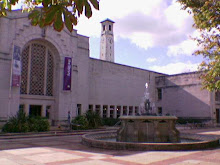Almost the end of another year, but we did not have a Christmas or a Winter theme, but a Nautical one. And an interesting selection resulted. From Brian Patten’s enigmatic ‘Ghost Ship’, to Sophie Hannah’s intricate ‘Rondeau Redouble’, by way of Oscar Wilde’s sonnet ‘Impression du Voyage’ we had plenty to discuss, although this poem divided opinion slightly – was it tongue-in-cheek some of us wondered? Matthew Arnold’s famous and beautiful Dover Beach was less difficult, as was the short ‘Journey’ by William Orange, while Dante Gabriel Rossetti’s ‘The White Ship’ provided an easily assimilated narrative before we were plunged into the complexities of H.D.’s ‘Helen in Egypt’ from Eidolon Book III. A stimulating afternoon all round.
At our meeting in January we will have Free Choice again.
At our meeting in January we will have Free Choice again.
